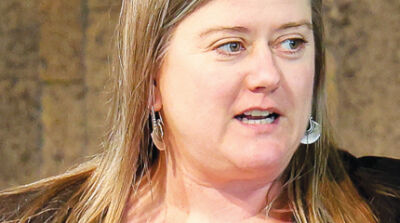GROSSE POINTE PARK — Grosse Pointe Park city officials are considering whether to increase the maximum purchase or contract amount that can be approved by administrators, without needing to come to the City Council first.
The current limit, of $5,000, hasn’t been updated since 1985, making it older than the current city manager.
“It’s been 39 years,” City Manager Nick Sizeland said during a Sept. 9 City Council meeting. “It’s probably time to adjust for inflation.”
Administrators say they’re seeking this change to make it easier for them to conduct everyday business and make needed purchases in a more timely manner.
After reviewing the policies of other metro Detroit cities, Sizeland suggested raising the limit to $20,001. During a first reading of the revised policy Sept. 9, Sizeland said it’s difficult to make many purchases promptly, especially since the council formally switched to one meeting per month a couple of years ago.
As proposed, the policy would allow Sizeland to make purchases of $5,001 to $20,001 without prior council approval. City department heads would be permitted to make purchases of $5,000 or less. Purchases of $5,001 to $20,000 would require the purchaser to get at least three quotes.
Department division supervisors would be able to make purchases of $2,500 or less. Examples of department divisions supervisors would be an electrical or pump station manager or a recreation specialist.
“We have internal controls in here,” Sizeland said.
A couple of council members concurred.
“There are more restrictions in this (policy) than what we have today,” City Councilman Brent Dreaver said.
City Councilman Tim Kolar said purchasing controls and documentation requirements gave him comfort.
“There’s layers of sign-offs there,” Kolar said.
Sizeland said administrators were working on a qualified vendor list for these purchases. He also said staff and others would need to be trained on the policy.
City Councilman Max Wiener said making this change would “streamline things” for the city.
“Without question, I would vote to increase it,” Wiener said of the spending cap. “It’s long overdue.”
When adjusted for inflation, Wiener said the $5,000 limit would equate to roughly $15,250 today.
Dreaver agreed that administrators need a higher maximum.
“I definitely want to see that threshold increased,” Dreaver said.
However, he felt the policy “needs a lot of refinement” first, to make sure that it’s clear to everyone.
“I think it’s a great start,” Dreaver said.
Sizeland said Finance Director/Treasurer Ginger Moriarity had sought a purchasing cap of $25,000.
City Councilman Marty McMillan said he’d be willing to approve a $25,000 limit if Moriarity thought that would be better, but not everyone agreed.
“There’s no reason why we shouldn’t stay in line with what our counterparts are doing,” City Councilwoman Christine Gallagher said. “I don’t think $20,000 is an appropriate amount of money.”
Of the five Grosse Pointes, Grosse Pointe Woods has made the most recent update to its purchasing policy, increasing it to $10,000 in 2022. In 2008, Grosse Pointe Shores also increased its purchasing cap to $10,000. Grosse Pointe Farms, which updated its purchasing policy in 2011, has an $11,000 limit, while Grosse Pointe City’s policy — which dates to 1980 — only allows for purchases of $5,000 or less.
Rochester, which updated its policy in 2017, has a $15,000 cap, while Bloomfield Township — which updated its policy in 2023 — has a $35,000 cap.
The council directed administrators to make some adjustments to the proposal. Sept. 9 constituted a first reading of the policy, so, as Mayor Michele Hodges noted at the outset of the discussion, it wasn’t up for a vote that night.
At press time, a revised policy hadn’t come to the council yet for a final vote. It wasn’t known when the council might be considering the purchasing policy again. The issue did not appear on the council’s Oct. 7 agenda.
 Publication select ▼
Publication select ▼
























